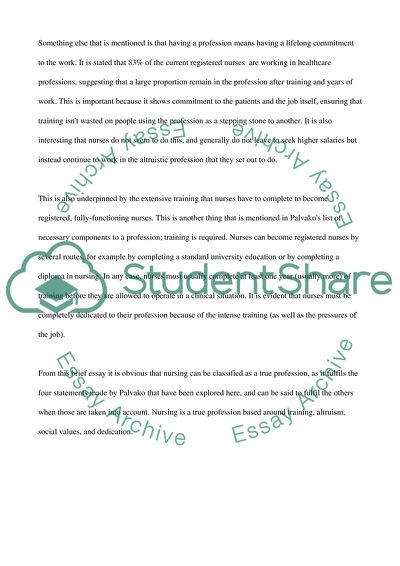Image of Nursing Essay Example | Topics and Well Written Essays - 500 words. https://studentshare.org/nursing/1756431-image-of-nursing-palvakos-characteristics-of-a-profession
Image of Nursing Essay Example | Topics and Well Written Essays - 500 Words. https://studentshare.org/nursing/1756431-image-of-nursing-palvakos-characteristics-of-a-profession.


